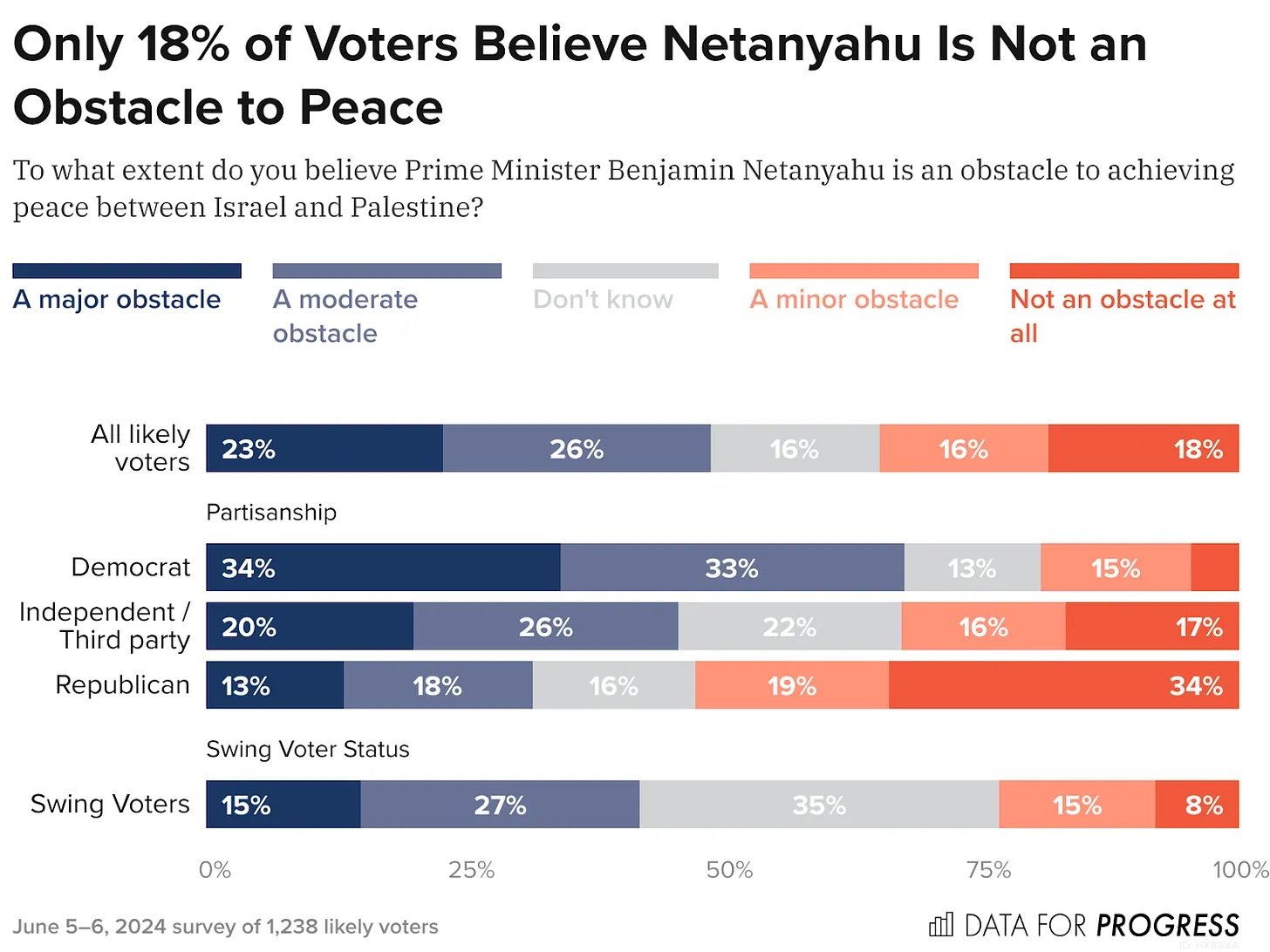U.S. Voters Believe Netanyahu Is an Obstacle to Achieving Peace



Survey shows a majority of Americans also want to cut military aid to Israel if Netanyahu rejects Biden's ceasefire proposal.
In the wake of a newly proposed ceasefire deal put forth by the White House and on the heels of President Joe Biden saying people have “every reason” to think Israeli Prime Minister Benjamin Netanyahu is extending the war in Gaza to stay in power, a new Data for Progress survey fielded from June 5 to 6 shows that a plurality of U.S. likely voters (49%) believe Netanyahu is a major or moderate obstacle to achieving peace between Israel and Palestine. Only 18% of voters believe the prime minister is not an obstacle at all.
When asked who is primarily responsible for the lack of a permanent ceasefire in the ongoing conflict between Israel and Hamas, a plurality of voters (38%) believe both Netanyahu and Hamas share equal responsibility. This sentiment is particularly strong among swing voters, who believe that Netanyahu and Hamas are equally responsible for the lack of a permanent ceasefire by a 19-point margin over Hamas individually.
Moreover, when asked about Biden’s three-phase ceasefire proposal announced on May 31, a significant majority of voters (64%) express their support. This includes a notable +37 net support from Independents and +44 from swing voters, highlighting widespread approval across various political demographics.
The rollout of the ceasefire plan initially faced some confusion as reports indicate Biden’s announcement of the three-phase proposal was made without prior agreement from Netanyahu. This announcement led to mixed signals from Israeli officials about their support for the plan. Netanyahu has since emphasized that Israel would not commit to ending the war permanently as it aims to destroy Hamas’ military capabilities. Since then, the UN Security Council has said it supports the proposal.
In the survey, voters were also asked if the U.S. should withdraw military aid from Israel should its government reject the ceasefire proposal. A majority (53%) support withdrawing military aid under these conditions. Republicans are the only major subgroup surveyed that does not support this measure, though among them, 35% express some level of support. The remaining subgroups all show net support, including +49 net support from Democrats, +17 from Independents, +40 from voters under 45, and +25 from swing voters.
These findings arrive at a time when key figures, such as U.S. Senate Majority Leader Chuck Schumer, have publicly criticized Netanyahu, labeling him a "major obstacle” to peace and urging for new leadership in Israel. Public opinion in Israel also shows increased resentment towards Netanyahu since the war began, while many Israelis believe Netanyahu’s decisions are driven by political motives rather than the national interest.
As these survey results indicate, American voters are critical of Netanyahu’s role in obstructing peace and support measures that align with proposed ceasefire efforts backed by the international community. This sentiment underscores a shift in public opinion, reflecting a growing demand for accountability and a reassessment of U.S. foreign policy towards Israel.




